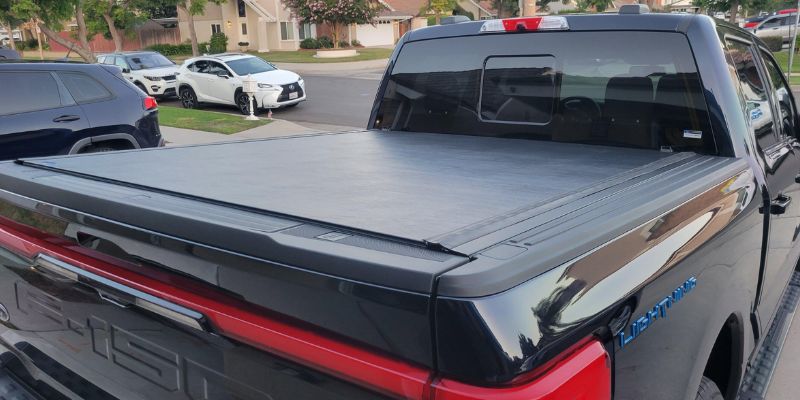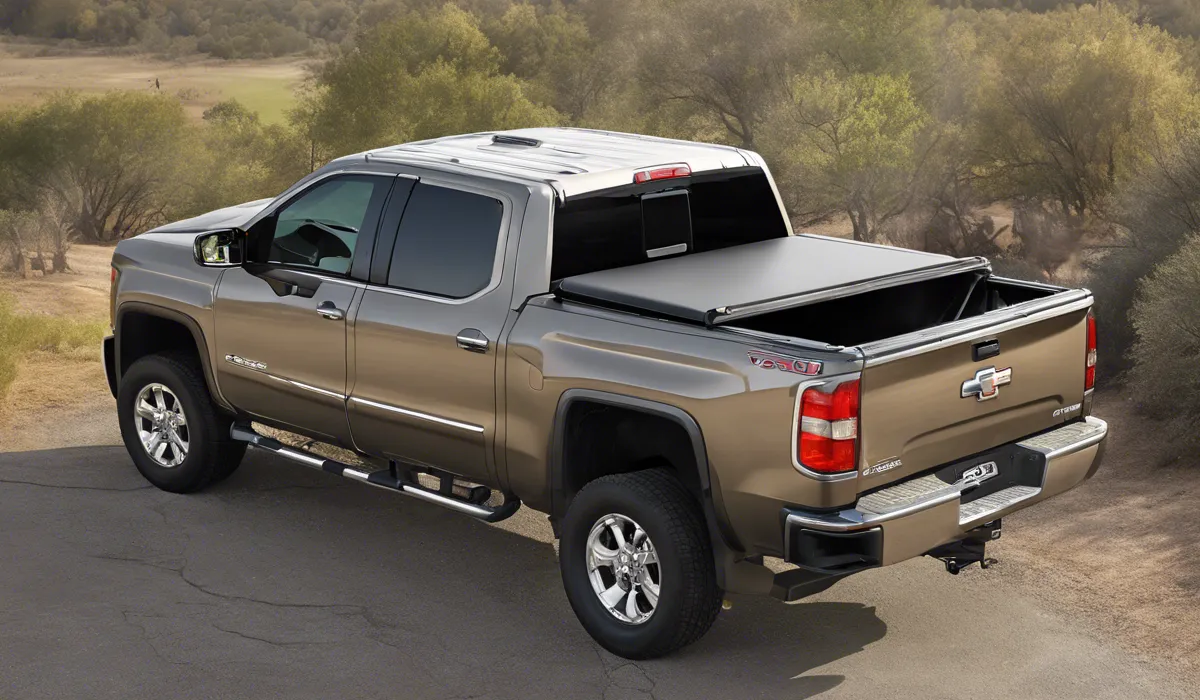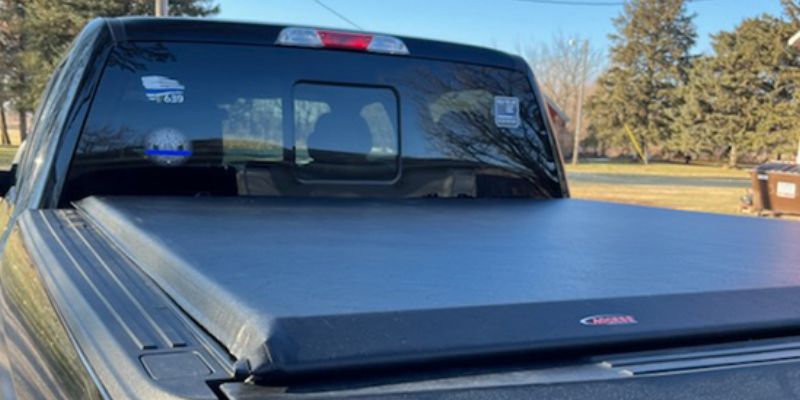Tonneau covers can shrink, particularly those made from vinyl or other materials that contract in cold weather. Regular exposure to extreme temperatures can cause the material to become less pliable and potentially lead to shrinkage, affecting the cover’s fit.
Factors Affecting Tonneau Cover Shrinkage

Material Composition of Tonneau Covers
Tonneau covers come in various materials, each with its characteristics and reactions to environmental conditions.
Vinyl covers are popular for their flexibility and ease of use, but they are particularly susceptible to shrinkage when temperatures drop.
Aluminum covers, known for their durability, are less likely to shrink but can still be affected by temperature changes that cause expansion and contraction.
Fiberglass covers maintain their shape well, but they can crack or become brittle in response to thermal cycling over time.
Understanding the material your tonneau cover is made from is critical to managing and preventing potential shrinkage.
Exposure to Varying Temperatures and Direct Sunlight
Temperature fluctuations are a primary factor in tonneau cover shrinkage.
In cold weather, the materials, especially vinyl, contract, leading to a tighter and potentially smaller cover.
Conversely, in hot weather, the cover can expand.
Direct sunlight also plays a role, as UV rays can weaken the material over time, making it less pliable and more prone to shrinkage.
The cycle of expansion and contraction over time can permanently alter the shape and fit of the cover.
Effects of Moisture and Humidity
Moisture and humidity can also impact the condition of a tonneau cover.
High humidity can cause some materials to swell, while a lack of moisture in the air can lead to drying out and shrinkage.
It’s essential to consider the typical climate of your region when selecting and maintaining your tonneau cover to ensure it stands up to the elements effectively.
Prevention and Maintenance Tips

Proper Installation to Ensure a Snug Fit
Correctly installing a tonneau cover is the first step to preventing shrinkage.
A snug fit without overstretching the material will help maintain the cover’s shape.
It’s important to follow the manufacturer’s installation instructions precisely or consider professional installation to ensure optimal performance and longevity of the cover.
Regular Cleaning and Conditioning Routines
Keeping your tonneau cover clean and conditioned is vital for preserving its quality.
Dirt and debris can cause abrasion, while neglecting the cover can lead to material degradation.
Regular cleaning with products designed for your specific cover type, followed by conditioning, will keep it supple and reduce the risk of shrinkage.
Using UV Protectants and Waterproofing Products
UV protectants can shield your tonneau cover from harmful sun rays, extending its life and preventing shrinkage caused by UV damage.
Waterproofing products also play a crucial role, especially for materials prone to damage from moisture and humidity.
These products help maintain the cover’s integrity against the weather.
Storage Recommendations When Not in Use
When your tonneau cover is not in use, storing it properly can make a significant difference.
It should be kept in a cool, dry place away from direct sunlight and extreme temperatures.
This precaution helps prevent the cover from shrinking and cracking, ensuring it remains in good condition for when you need it next.
Solutions for a Shrunken Tonneau Cover

Techniques for Stretching and Reshaping Vinyl Covers
If your vinyl tonneau cover has shrunk, there are techniques to stretch and reshape it.
One common method is to park your vehicle in direct sunlight on a warm day, allowing the material to warm up and become more pliable.
Then, gently stretch the cover back into place. It’s a delicate process that requires patience to avoid damaging the cover further.
Adjustments and Modifications for Hardcovers
Hardcovers like aluminum or fiberglass may not shrink in the same way as vinyl, but they can warp or become misaligned due to temperature changes.
Making minor adjustments to the mounting hardware can sometimes compensate for these changes.
If the cover has become damaged, it may require more significant modifications or the replacement of parts.
When to Seek Professional Help or Consider a Replacement
While some minor shrinkage issues can be dealt with at home, there are times when professional help is necessary.
If the cover is significantly shrunken or damaged, or if you’re unsure how to proceed with stretching or adjustments, a professional can provide the expertise needed.
In cases where the cover is beyond repair, it may be time to consider a replacement, ensuring that you select a size and material suitable for your climate and usage needs.
FAQs About Tonneau Cover Shrinkage
Do tonneau covers shrink in cold weather?
Yes, tonneau covers, especially those made of vinyl, can shrink in cold weather due to the material contracting in lower temperatures.
Can extreme temperatures permanently affect a tonneau cover’s fit?
Regular exposure to extreme temperatures can cause the material of a tonneau cover to become less pliable and potentially lead to permanent shrinkage, affecting its fit.
How can I prevent my tonneau cover from shrinking?
To prevent shrinkage, minimize the cover’s exposure to extreme cold and consider using a protective conditioner designed for the specific material of your cover.
Will a shrunk tonneau cover still be usable?
A shrunk tonneau cover may still be usable, but its fit and effectiveness in protecting the truck bed could be compromised.
Are all tonneau covers susceptible to shrinkage?
While all materials can be affected by temperature changes to some degree, vinyl and other pliable materials are particularly susceptible to shrinkage in cold weather.
Final Thoughts
Tonneau covers, especially those made of vinyl, are susceptible to shrinkage due to cold weather.
The materials tend to contract when exposed to extreme temperatures regularly, leading to a loss of pliability and potentially affecting the fit of the cover over time.
